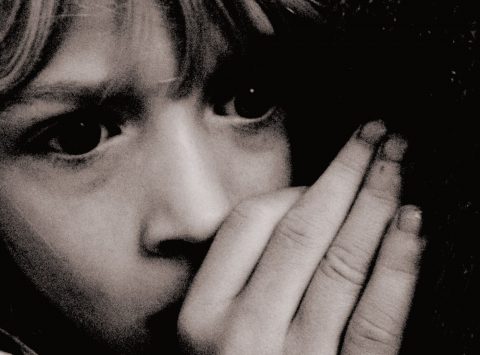
There’s a saying, ‘We fear that which we do not know.’ Many will recite this as a way of self comforting after being criticized. While I think this is true, I also think ‘we fear that which we do know.’
After the birth of our 3rd son, we joined the ranks for minivan owners. If I could give advice to my 25 year old self, I would tell me, ‘Don’t fear the minivan, those things are freakn’ sweet.’
We got a used one, with all the features possible. Since it wasn’t a hassle to get 3 kids into the back of a sedan anymore, we were more open to driving around a bit. Little did we know, we had a battery terminal that could pop off the positive terminal just by blowing on it. My wife found out the hard way after being stranded in a parking lot after a mom’s group. Thankfully, when it appeared to be a dead battery, the cable had come off.
It doesn’t seem like a big problem except now we know something. We know that there could be a possibility of hitting a pot hole (a probability of that here in Colorado Springs), it could shake the cable loose and then risk the battery not being charged while driving. The fear of getting somewhere, enjoying our time together, and then not being able to start the van back up, permeated through our thoughts.
[bctt tweet=”Constant #fear is just as damaging as drug addictions, trans fats, and cubicle living.”]
I decided that I would use Google University to see how to change the battery terminal. Surprisingly, it looked like something I could handle, and I’m not a car guy. I built up the confidence, went to the car parts store, found all the parts I needed in less than 2 minutes and was ready to tackle the project of saving the minivan.
I opened the hood up, located the battery cables and was dismayed at all the extra cables that weren’t on the Google videos. I began to fear that which I did not know, especially when it comes to electricity. Long story short, under the many suggestions from my wife, I called our car whiz, motor-cross racing friend.
He looked at it, assessed the situation and fixed the problem in about 8 minutes.
What’s the point? The point is that fear is paralyzing, whether you know what you’re getting yourself into or you don’t know what you’re getting yourself into. As I watch and observe our nation during this political season, I think fear of the known and unknown is destroying our nation’s physical health just as much as our low fat diet recommendations, sedentary lifestyles, sugar obsessions, and badges of busyness.

I should clarify though. Fear is a good thing. It saves your life. It keeps you from doing stupid things or gets you to take action to protect yourself. The problem is that fear often transitions into being afraid. The more you allow yourself to be afraid, this shifts your nervous system into an automatic survival and protection mode. As you default into protection mode, your body shifts into a constant state of tissue break down.
This constant state of tissue break down wrecks the gut, your thyroid, fertility, sex drive, immune function, and cognitive function. The amazing thing is that you can control it. You can control it physically and emotionally. You don’t have to be afraid. How?
Putting Fear, Worry, and Anxiety into Perspective.
If I have a situation that I recognize I’m developing fear or worry around, I stop and analyze. I play the ‘worst case scenario’ game. If it were a real immediate danger, these action steps may not apply. If a mountain lion is staring me in the face, my logical decision making will probably be thrown out of the equation in deciding what to do.
Worst Case Scenario. If I feel myself worrying or fearing something I stop and ask ‘what is the worse case scenario?’ For most any instance, the worse case scenario that comes to people’s minds is death. Is death a possibility? Yes. But then I ask myself, is death a probability? For all cases I have worried about in my life, the answer is no. But if it did happen, is my family set up to be taken care of the rest of their lives? That I can say yes.
If I can eliminate the fear of the worst possible case scenario happening of death, then I move on to the next worse case scenario. For me, as a chiropractor that also loves to write and do CrossFit, the next worst case scenario would be losing my hands. Is the situation that I am worrying about have a possibility of losing my hands? I guess anything is possible. Is it probable? Not likely. If I were to lose my hands, am I protected to be able to provide for my family? Yes, I may not be able to perform adjustments but I could still teach or speak and earn an income to support my family.
Is there a possibility of losing my business, house, savings, etc? Possible but not probable. If it did happen, we know (strongly hope) our family and friends would reach out and helps us until we got our feet under us again. It would suck big time to lose everything but if everyone was healthy, then we can bounce back quickly.
I keep playing this game until I get to the point of something bad happening that is a real probability. If I’m ok with the risk of that probable situation happening, then I move forward and worry no more since I’m prepped mentally for that potential outcome. If I’m not ok with that probable situation happening, I then look for other options.
With our health outcomes, people play so many scenarios that eventually there is paralysis by analysis and no action is ever taken. There’s the fear that it will be too hard. The fear of something not working. The fear of who to trust. The fear of criticism. The more we let fear creep in, the more we set the stage for being afraid as our default life setting. Constant fear is just as damaging as drug addictions, trans fats, and cubicle living.
Enjoy life. Have some fun. And always remember, ‘Don’t fear the minivan, those things are freakn’ sweet.’


0 Comments